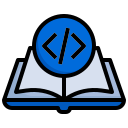Getting Started with Coding: A Beginner's Roadmap
Welcome to the exciting world of coding! Whether you’re looking to jumpstart a career in technology, create your own apps, or simply understand the technology that shapes our modern world, learning to code is a valuable skill. The journey from beginner to proficient coder involves understanding fundamental concepts, selecting the right programming language, and engaging in consistent practice. This roadmap is designed to guide you through the initial steps in learning to code, providing insights into the knowledge and skills you need to develop along the way.

What is Programming?
Programming is the process of designing and building an executable computer program to accomplish a specific computing result. It involves writing code in various languages and requires problem-solving skills and analytical thinking. The programming world offers a wide array of fields such as web development, software engineering, data science, and more.
Key Concepts in Programming
At its core, programming is about solving problems through logic. Concepts such as variables, data types, loops, functions, and control structures are fundamental to effectively write and understand code. Familiarizing yourself with these concepts is crucial as they form the foundation of every programming language.
Setting Up Your Environment
Before you start coding, setting up a suitable programming environment is necessary. This involves installing a text editor or an integrated development environment (IDE) and configuring your system to run code. The right setup enhances productivity and helps to identify errors easily while writing programs.

Choosing the Right Programming Language
Languages like Python, JavaScript, and Ruby are popular choices for beginners due to their readability and community support. Python, known for its simplicity and versatility, is excellent for data analysis and scientific programming. JavaScript is vital for web development, while Ruby is known for its elegant syntax, favoring rapid development.
Engaging in Consistent Practice
Building Simple Projects
Start by working on small, manageable projects to apply what you’ve learned. Creating simple programs, like a calculator or a basic website, can significantly boost your understanding and give a sense of achievement and progress. Breaking down projects into smaller tasks can help prevent feeling overwhelmed.
Code Reviews and Feedback
Engaging in code reviews with peers or mentors can provide valuable feedback. Code reviews help identify areas for improvement and reinforce good practices. Constructive feedback will increase your coding capability and prepare you for collaborative work environments in the future.
Importance of Consistency
Consistency in practice beats sporadic intensive periods of learning. Allocating a specific amount of time each day to code helps reinforce the materials continuously. Habits of consistency will lead to proficiency over time and prepare you for more challenging programming tasks.
